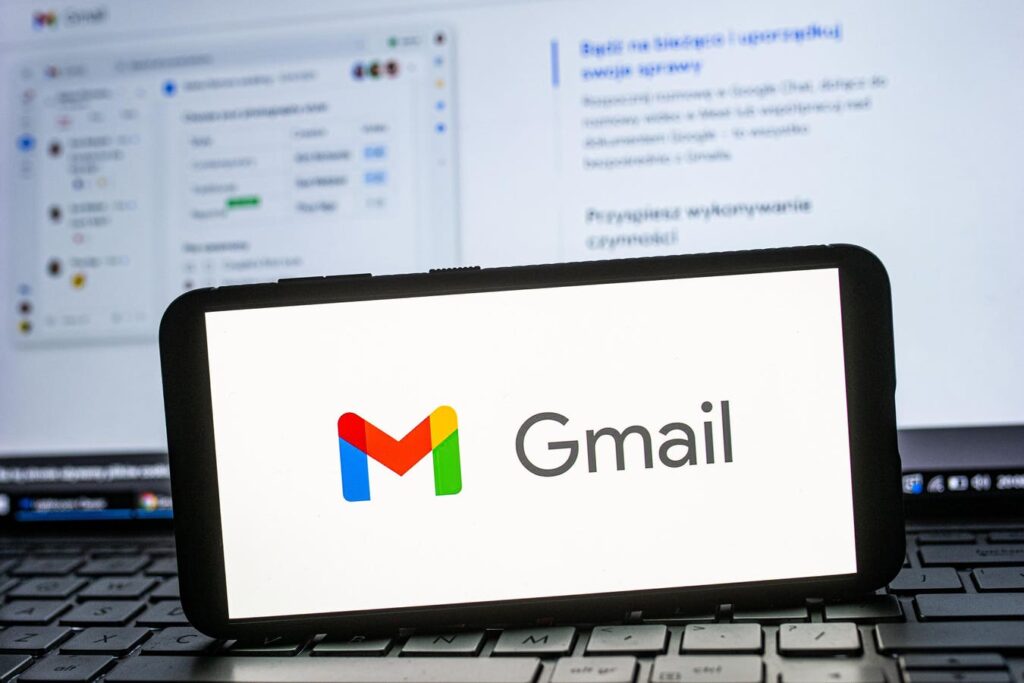Hidden Google tool can (in some cases) recover deleted Gmail
When you delete an email from your Gmail inbox, it's moved to the Trash folder where it remains for 30 days. The email is permanently deleted once it expires or if you empty the Trash beforehand. While this feature is helpful for privacy and security, it can cause problems if you accidentally delete an important email and need to restore it. You might also be concerned that malicious actors could gain access to emails that you thought were deleted. Here's everything you need to know about how to delete and restore messages in Gmail.
Deleting old, sensitive messages from your Gmail inbox is a good security measure.
There are many reasons why an email message ends up in the trash folder, waiting to be deleted permanently by Gmail. Maybe you had a private conversation with someone you don't want others to see, or maybe it's a message that contains sensitive information about a password reset that you want to delete for security reasons. In fact, deleting messages that could be used by hackers if your Gmail account is compromised is generally considered a good security practice. Reducing your attack surface, including your email inbox, is never a bad thing. As long as you don't accidentally delete an important message. Everything in the trash folder, also called the bin in some geographic locations, is permanently deleted after 30 days. The same is true for the spam folder, so it's important to check both folders to see if anything you want to keep has arrived there.
How to recover deleted emails in Gmail
If you find something in your Trash folder that you want to keep, just like any other folder that contains spam, you can move the message back to your Inbox or anywhere else – as long as you're within the 30-day limit, of course. Just go to your Trash or Bin folder, select the message you want to retrieve, and move it. That's all it takes, unless you deleted it manually or it expired.
Moving Permanently Deleted Messages is Easy
If you don't see the message in question, it may have been there too long for the move to inbox method to work, or you may have manually emptied the trash before the 30 day expiration period expired, in which case things get a bit more complicated and there is more uncertainty about whether recovery will be successful.
Google itself states that “after 30 days, messages will be permanently deleted from your account and cannot be restored,” and this applies to users of personal Gmail accounts, but there is some hope if you emptied your trash before reaching that limit. A user who accidentally deleted a folder containing travel ticket confirmations and then emptied their trash also posted a request for help on the official Gmail support community, which resulted in a pleasant surprise. A “Diamond Product Expert” on the support forum suggested that while such incidents are usually irreversible if the user deletes the trash, there is a “secret” Google tool for hacked accounts that can help.
Gmail Message Recovery Tool
The Gmail message recovery tool describes itself as being able to “recover emails that may have been deleted because someone accessed your account without your permission.” When you visit this little-discussed Google resource page, you're taken to the Gmail account under investigation and see the message “We'll try to recover emails deleted within the last 30 days.” This is important, because expired messages can't be recovered. This is in case your trash was emptied prematurely.
A demonstration of the “secret” Gmail message recovery tool
Once you have confirmed that your Gmail account is correct,[続行]Click the button and let the tool complete its search. How long this process takes will depend on how large your Recently Deleted Trash folder is, but after a minute or so you should know if Google was able to recover your deleted messages. While there's no guarantee of success, one user who lost their travel confirmation posted a response saying, “I was able to recover my email using the link provided. What a relief!”
Not all recovery efforts have a happy ending, so it's much better to avoid getting into this situation in the first place.
Not all recovery efforts are successful
We recommend that you make it a habit to check your Spam and Trash folders regularly, at least once every 30 days, so that you have a better chance of finding errant messages and salvaging them before they disappear.[ゴミ箱を空にする]Do not click the button. You may also consider archiving the message instead of deleting it. Archiving removes the message from your inbox. However, it will still be visible when you view all email, so you can easily find it. Therefore, from a security and privacy perspective, archiving is not a good option. It is possible to back up your Gmail messages with tools such as Got Your Back or Own My Copy, which provides another recovery option. However, duplicating email message data is not a good idea because it increases the attack surface you manage.


